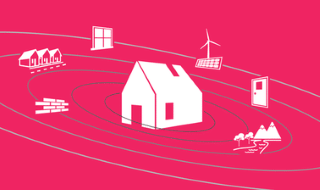Inclusive and Sustainable Cities
Learn how urban design and architecture can address inequality and socio-economic segregation in cities. Explore innovative solutions for inclusive and sustainable urban development. Join this program to gain valuable insights and analytical tools for tackling urban challenges and promoting the construction of more inclusive cities.
What you will learn
- Identify the main urban challenges in your local environment/context, their drivers and consequences, with particular attention to inequality and socio-economic segregation.
- Translate theoretical knowledge into analytical tools for your local context and develop recommendations for innovative urban solutions.
- Develop critical approaches, urban design and policy solutions to address urban challenges and contribute to the development of inclusive cities and adequate housing in different social, political and geographical contexts.
- Employment of urban and regional planners is projected to grow 11 percent from 2019 to 2029, much faster than the average for all occupations. (source: Occupational Outlook Handbook)
- The median annual wage for urban and regional planners was $74,350 in May 2019. (source: Occupational Outlook Handbook)
Program Overview
Learn about today’s urban challenges and how architecture and urban design can be used to tackle inequality and socio-economic segregation, and to promote more inclusive and sustainable cities.
By 2050, an additional two billion people will live in the cities of the world. If the current approach to urbanization does not change, most of these people will live in sub-standard conditions, lacking opportunities for income generation, occupying inadequate housing and without sustainable livelihoods. How can this gloomy scenario be avoided?
Urban design and architecture can contribute with new methods and approaches to promote the construction of more inclusive and sustainable cities.
In this program you will take part in a cross-disciplinary conversation that looks into the state of cities in the Global North and Global South. We will discuss the main challenges that urban communities worldwide are facing and examine which methods and approaches can be implemented to promote the Sustainable Development Goals (SDGs), in particular SDG 11: “Make cities and human settlements inclusive, safe, resilient and sustainable”.
This program consists of three courses. The introductory course will help you identify what are the main urban challenges in your local environment and debate possible innovative solutions for it. The other two courses deal in greater depth with two fundamental challenges related to SDG 11: affordable housing and inequality.
In each course, you will engage in a series of modules that explore a combination of innovative research with first-hand empirical material collected in cities and urban areas visited by the course team. These modules will help you grasp how housing and urban design offer tools and instruments to tackle one of the world’s main challenges: sustainable urbanization for a more sustainable and resilient urban future.
Currently ranked as the World #2 School of Architecture (QS World University Rankings 2020), the Faculty of Architecture and the Built Environment at TU Delft has well-merited its reputation as a world leader in design pedagogy and innovation. This program brings together TU Delft’s expert researchers and instructors who have been exploring the relationship between design and societal challenges from different planning and design perspectives. Their insights offer learners new strategies to rethink the development of the cities and houses of the future.
Courses in this program
Rethink the City: New approaches to Global and Local Urban Challenges
How do you plan future cities? Explore alternative theories and innovative solutions for urban challenges in the global south.
Global Housing Design
Learn about the key design strategies required to develop adequate housing and inclusive dwelling environments for sustainable urban development.
Building Inclusive Cities: Tackling Urban Inequality and Segregation
Discover how urban design can help tackle inequality and socio-economic segregation in cities. Learn how to use analytical tools to measure these two phenomena and make urban design part of the solution.
Job Outlook
User Reviews
Be the first to review “Inclusive and Sustainable Cities”
You must be logged in to post a review.







There are no reviews yet.